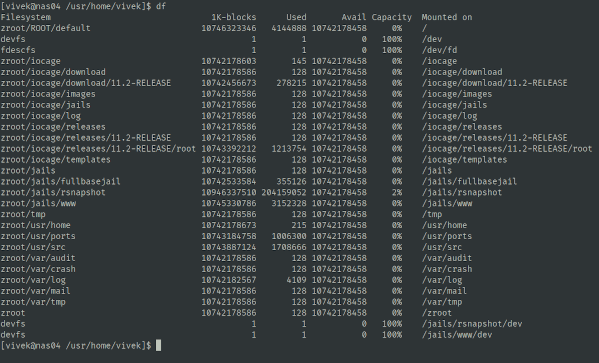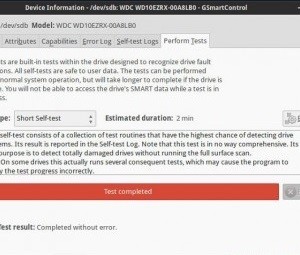
- #Linux disk health install#
- #Linux disk health update#
- #Linux disk health software#
- #Linux disk health windows#
How significant is 0.50 TB of writing to an SSD of this size? Is my assumption of 512 bytes per sector a valid one? I wonder if that resulted from hard formatting the drive (writing zeroes over the whole drive) in order to remove the previous owner's data? That just happens to be about the rated capacity of the drive (500GB Samsung 860 EVO). If I assume a sector size of 512 bytes, the total LBAs converts to 0.50 TB (515 GB). I found a web page that converts LBAs to total bytes. I then ran gsmartcontrol, and was able to view the collected SMART data. Unfortunately, gnome-disks could not give me the SMART data, as that option was grayed out. I quick-formatted it to ext4, then mounted it. The drive was immediately recognized by gnome-disks, but the drive could not be mounted as it was unformatted. I connected the refurb unit to my old Mint 18 box via a USB/SATA adapter. Many thanks to both athi and phd21 for the helpful suggestions. Viewtopic.php?f=47&t=267825&hilit=smartctlįYI: I have had really good experiences with Silicon Power SSDrives.Ī: Silicon Power 256GB SSD 3D NAND A55 SLC Cache Performance Boost SATA III 2.5" 7mm (0.28") Internal Solid State Drive (SP256GBSS3A55S25): ($32 us)Ī: Silicon Power 512GB SSD 3D NAND A55 SLC Cache Performance Boost SATA III 2.5" 7mm (0.28") Internal Solid State Drive (SP512GBSS3A55S25): ($54 us)Ī: Silicon Power 1TB SSD 3D NAND A55 SLC Cache Performance Boost SATA III 2.5" 7mm (0.28") Internal Solid State Drive (SP001TBSS3A55S25) (less than $100us ($97us) Gsmartcontrol not able to enable SMART on external drive - Linux Mint Forums Viewtopic.php?f=47&t=287309&hilit=gsmartcontrol
#Linux disk health update#
(solved) I can not update GSmartControl - Linux Mint Forums Read these previous posts below and the links in them. If you bought a new SSD, I am surprised they sent you a refurbished SSD back. But, any manufacturer may have a problem(s) sometimes with a particular unit or batch of units. Samsung has a great reputation and their SSDrives are considered premium drives.
#Linux disk health install#
Install "smartmontools" and related applications like "gsmartcontrol" from the "Synaptic Package Manager (SPM)" to monitor or view drives including SSDrives. I'm hoping someone else in this forum might have some experience along these lines.

I was given the impression by Samsung that the amount of writes to the disk is somehow recorded in the drive's controller, but I haven't figured out a way to access that. Or perhaps there is some other approach that could be accomplished on a Linux machine.
#Linux disk health windows#
I'm wondering if I could use something like Crystal Disk Info on a borrowed Windows machine, with the SSD connected via USB.

Samsung says they offer no support for Linux.
#Linux disk health software#
Samsung tells me I could use there "Magician" software to do so, if I were running Windows, but I'm not about to throw THAT on there. I'd like to learn if there is a way to determine how much writing the refurb SSD had, prior to my receiving it. On the other hand, if it has seen heavy usage, I might want to throw it into one of my old laptops that gets light use.


If it has had little writing, it should still have a long life expectancy, and I can use it to reinstall Mint on my main machine. Not knowing how much writing has already been done to this unit (prior to my receiving it), I don't know how I should utilize it. Samsung service was unable to repair the SSD, and therefore sent me an unformatted refurbished unit. Despite many helpful suggestions and various attempts at reviving the SSD, I had to RMA it to Samsung service. Although recognized by the BIOS, it would no longer mount. After a few weeks of great performance, the SSD died it would no longer boot. I installed Mint 19 xfce on it and configured my system to minimize unnecessary writing to the SSD. In an earlier post, I described my disappointing experience with a new Samsung 860 EVO 500GB SSD.


 0 kommentar(er)
0 kommentar(er)
